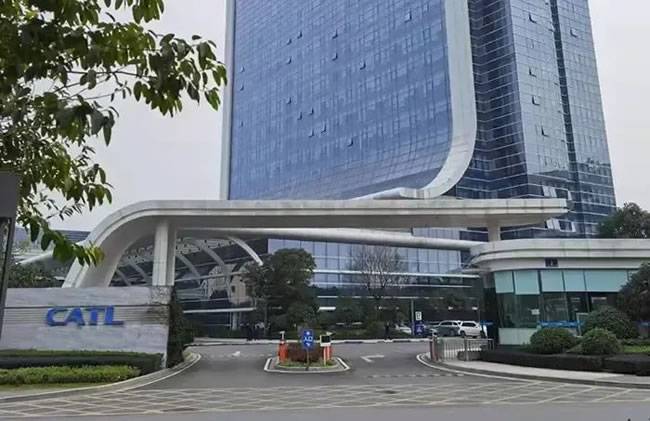On the evening of March 8, BAIC Blue Valley announced that the company plans to jointly invest in the establishment of a platform company with BAIC Industrial Investment and Beijing Hainachuan. The platform company will serve as the management and investment entity and jointly invest in the establishment of a joint venture company, Beijing Times New Energy Technology Co., Ltd., with CATL, Jingneng Technology and Xiaomi Motors (subject to approval and registration by the industrial and commercial department). The joint venture has a registered capital of 1 billion yuan, of which Platform Company contributes 390 million yuan, accounting for 39%, CATL contributes 510 million yuan, accounting for 51%, Jingneng Technology invests 50 million yuan, accounting for 5%, and Xiaomi Automobile 50 million yuan, accounting for 5%. After the joint venture is established, it will invest in building an intelligent battery cell manufacturing factory in Beijing.
According to the announcement, the joint venture is located in the Beijing Economic and Technological Development Zone, and its business scope is expected to include the development, production, and sales of lithium-ion batteries, power batteries, and energy storage batteries, as well as the provision of related after-sales and technical consulting services. According to the investment ratio, the platform The company invests 39%, and BAIC Blue Valley has a penetration investment of 5%. The registered capital of the platform company is 390 million yuan, of which BAIC Blue Valley invested 50 million yuan, accounting for 12.82%; BAIC Industrial Investment invested 240 million yuan, accounting for 61.54%; Beijing Hainachuan invested 100 million yuan, accounting for 25.64% %. BAIC Industrial Investment and Beijing Hainachuan are related parties of BAIC Blue Valley, so the transaction constitutes a joint investment-type related transaction with a related party.
CATL has previously deployed 11 production bases in China, located in Fujian, Jiangsu, Qinghai, Sichuan and other places. As of now, CATL has not disclosed relevant information about the Beijing factory project.
News that CATL planned to build a new Beijing factory first came out in January this year.
According to the “Beijing Daily” report, on January 11, the Beijing Municipal Development and Reform Commission announced a series of policy measures to promote economic development in the first quarter, which included “plans to start construction of the CATL Beijing factory project this year.” CATL did not respond to the news at the time.
The “Key Task List of the 2024 Municipal Government Work Report” issued by the Beijing Municipal Government in February this year also included the start of the construction of the first phase of the CATL battery cell factory project.
Xiaomi Motors and BAIC Group, the joint venture partners of the Beijing battery factory, are both power battery customers of CATL.
Xiaomi Motors released its first model, SU7, at the end of last year, which will use Kirin batteries from CATL. This model has not yet been officially launched. CATL released the Kirin battery in 2022, which uses a module-less battery structure. Its technical highlight is to skip the module and directly integrate the cells into the battery pack, which increases the overall energy density of the battery pack and thus improves the cruising range.
BAIC Group’s BAIC EU5 model is also equipped with power batteries from CATL. However, according to statistics from Gaogong Lithium Battery, BAIC Group is not currently the leading customer of CATL. Last year, CATL’s top three domestic auto companies by supply volume were Tesla, Geely Automobile and Li Auto.
Establishing joint venture factories with car companies is an important means for battery companies to deeply bind with downstream customers. Before joining forces with BAIC Group and Xiaomi Motors, CATL had already established joint ventures with FAW Group, SAIC Motor, GAC Group, Geely Automobile and other car companies to jointly build battery factories. CATL holds 51% of the shares in the above-mentioned joint ventures. CATL’s business includes four major segments: power batteries, energy storage batteries, battery materials and recycling, and battery mineral resources. In the first half of last year, the power battery sector contributed 73% of the company’s revenue.
The performance forecast disclosed by CATL in January showed that net profit in 2023 is expected to be 42.5 billion-45.5 billion yuan, a year-on-year increase of 38.31%-48.07%. This is the first time that its annual net profit has exceeded 40 billion yuan. The company has not released full-year revenue data.
Ningde Times said that the power battery and energy storage industry continues to grow. With its new technologies and new products being launched, overseas market expansion is accelerating, and customer partnerships are deepening, the company’s production and sales are growing rapidly.
Media Contact
Company Name: Fuzhou Ruida Machinery Co., Ltd.
Email: Send Email
Country: China
Website: vovt-diesel.com

